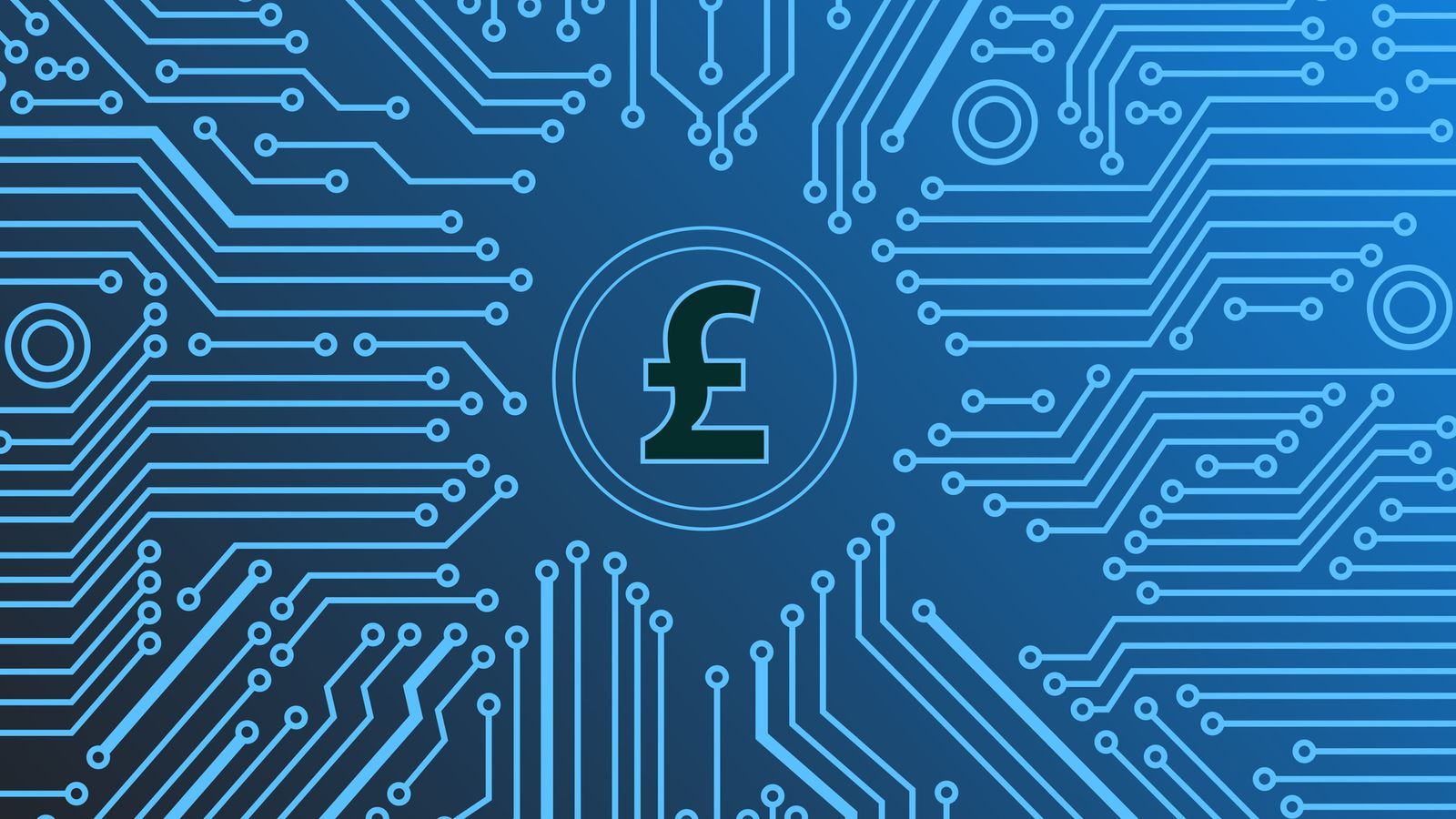
Britcoin digital pound decision to be made by 2025
A decision on whether to introduce a so-called 'Britcoin' digital pound is to be made by 2025, the Treasury has announced, as a consultation paper has found one is "likely to be needed in the future".
The creation of a digital form of the currency had been the subject of a consultation paper, published on Monday by the Treasury and the Bank of England with a decision on whether to implement a digital pound to be taken around the middle of the decade.
The decision will largely be based on future developments in money and payments, the Treasury said.
Members of the public are now being invited to give their views on the digital pound as part of research and development being done by the Bank.
A potential Britcoin would be issued by the Bank of England and not the private sector, unlike other cryptocurrencies such as Bitcoin.
Also unlike crypto the coin would have intrinsic value connected to the pound.
The Treasury said the needs of vulnerable people are being considered in the design process to ensure Britcoin would be simple to use and both understood and trusted as a form of money.
Should a digital pound be introduced the Treasury said there'd be a limit on the amount of Britcoin people can hold during an introductory phase to strike a balance between encouraging use and managing risks, the Treasury said.
Among those risks is the potential for large and rapid outflows from banking deposits into Britcoin, it added.
A digital pound would work like paper money in that it is issued and controlled by the Bank of England and would be interchangeable with cash and bank deposits.
At present digital money is only issued to banks, rather than the general public, but with a digital currency digital money can be sent without the need for a bank account.
Speaking on the Ian King Live show in June 2021, the co-chair of the Bank and Treasury taskforce, Sir Jon Cunliffe, said using Britcoin could be cheaper and easier than card transactions.
"They do offer the potential to bring down cost," he told Ian King.
 The report said a 'Britcoin' could have 'far-reaching consequences'
The report said a 'Britcoin' could have 'far-reaching consequences'"So it could be cheaper, it could be more convenient. These new forms of money offer the ability for them to be integrated more with other things through their software. So you can think of smart contracts, in which the money would be programmed to be released only when something happened. You could think, for example, of giving the children pocket money but programming the money so that it couldn't be used for sweets."
Responding to the announcement, shadow city minister Tulip Siddiq said: "We fully support the Bank of England's work exploring the potential benefits of a safe and stable, Central Bank Digital Currency."
"This is a welcome contrast to the Conservative government's promotion of the crypto wild west, which has put millions of peoples' savings at risk," she said.
"A Labour government would be serious about attracting FinTech companies to the UK, by safely harnessing the potential of new technologies and our ambition to make Britain the home-grown start-up hub of the world."











